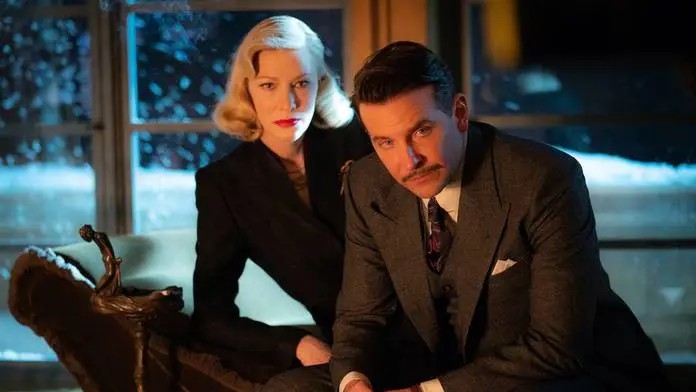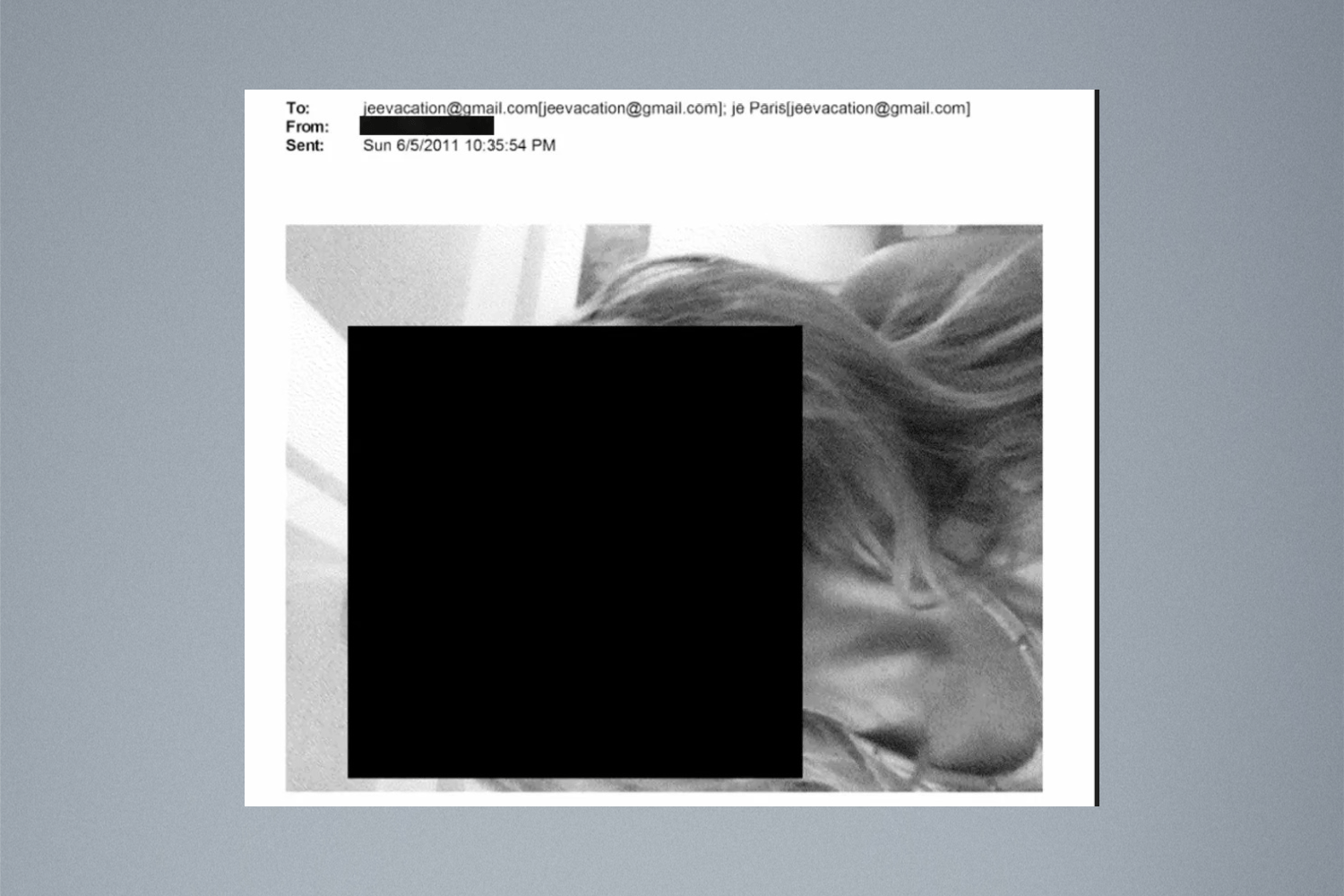An amazing thing about the adaptation of The Right Stuff, I’ve always thought, was just how many actors in 1983 looked like astronauts. In 2021, apparently, all the actors look like carnies.
William Lindsay Gresham’s grim 1946 bestseller Nightmare Alley begins in a late-Depression traveling carnival, and Guillermo Del Toro didn’t have to scour too hard to credibly populate his new adaptation. All Willem Defoe’s gotta do as the boss is flash that rictus of ingratiating menace to trap your reaction between trust and suspicion. Toni Collette brings her frozen face of ironic shock, the aspect of a woman who has seen things, to the mind-reading Madame Zeena. Ron Perlman, a del Toro fave, is the big-hearted strongman who lands some of the best-sounding punches in recent film.
And Bradley Cooper? Ah, Bradley Cooper’s fine. Face it, he usually is. He’s more famous than he deserves to be, of course, but who isn’t? In an earlier era of bona fide movie stars, he’d be, I don’t know, Joel McCrea or someone—the sort of reliable leading man you never have to worry about stealing your picture away from you. Thing is, if you resent Cooper’s success, even as mildly as I do, that works out a-OK for him. My expectations are irrationally a notch or two lower than appropriate, so every time I see him in a movie, he handily exceeds them. Maybe someday I’ll learn.
If old movie buffs think I’m selling McCrea short, my point's that Cooper isn’t Tyrone Power, who ripped through Edmund Goulding’s brilliant (if slightly Code-hobbled) 1947 version of this story. Playing deliberately against type to scuff up his heroic image, Power made con-man turned famous stage mentalist Stanton “Stan” Carlisle a larger-than-life cautionary tale. Cooper’s Stan is instead a streetwise cad who’s not quite as charming or smart as he thinks, but smarter and more charming than most of the marks he encounters—and Bradley Cooper, whose lack of gravitas may be his greatest strength, should play this role, and maybe all his roles, exactly that way.
On the lam from one of those haunted pasts you’re always hearing about, Stan hooks up with a carnival as a grunt, then sets about learning the arcane, cynical trickery behind mind reading—once you latch on to a dupe’s commonplace hopes and fears, they do the hard work for you. (Gresham’s insight is that this hokum is both a craft that requires you to learn specific mechanical techniques and an art dependent on the practitioner’s intuitive leaps.) Once Stan has sucked all the knowledge he needs from Madame Zeena and her doomed, drunken mate, Pete, he skedaddles to trompe le monde with a cuter, younger, naiver partner.
This gal’s called Molly, and she’s played by perpetual ingenue Rooney Mara, as always looking so mid-20th-century it’s hard to imagine her saying the word “cryptocurrency” aloud and easy to imagine that her period costumes are just her ordinary street clothes. (Seriously, Mara must have worn that same red beret in three movies now.) Stan and Molly's newly high class act draws the attention of the gullible society set, as well as one of its more capable handlers, psychiatrist Lilith Ritter (Cate Blanchett, exuding her own idiosyncratic aura of femme fatale soft focus). Lilith opens up yet another level of scammery to Stan, and he zeroes in on the ultimate mark, a fat cat (Richard Jenkins) who bears the Dickensian don’t-fuck-with-me-I’m-rich name of Ezra Grindle, seeking forgiveness from a past love whose life he destroyed.
Nightmare Alley is based on a perfect (and, as they say, timely) noir conceit: Everyone’s on the make—it’s just that some cons are higher class (and stakes) than others—and deep inside we’re all sideshow freaks, gnawing on live chickens to assuage our deepest fears. In 2010, the Chicago Reader’s Cliff Doerksen pegged Gresham’s book precisely as “a spellbinding bummer, capable of eating toasted little Cormac McCarthy novels for breakfast.” In suggesting a film remake at that time, Doerksen surely did not have in mind del Toro, who’s ultimately a softie, more entranced by the novel’s idea of world-as-freak-show than attuned to its psychosexual nihilism.
Del Toro accentuates the gore and the uncanny. The CGI sheen of luridly saturated colors he slathers over everything creates a contemporary unreality, the 21st century equivalent of neon. Carnival tents brim with jars of eerily lit, deformed human embryos. Faces are never merely slashed when they can be bashed. And he romanticizes the chicken-biting geek—for Gresham the emblem of a human reduced to basest and maybe truest form—as a feral outsider, a sad fish-man looking for his Sally Hawkins.
In del Toro’s hands, Nightmare Alley has neither the heft and inevitability of a tragedy nor the gasping swoops of thrill ride. The neat Freudian bow the script wraps Stan’s ambitions in seems overdone—sometimes a grift is just a grift. And Stanton’s eventual comeuppance (FOH with “spoiler” complaints, it’s a noir, ya noob) lands not with Gresham’s brutal irony or the cerebral satisfaction of a Twilight Zone climax—it’ s more like when Daffy Duck acknowledges to the audience he’s been bested at the end of Looney Tune.
A crueler auteur could have extracted a more cutting statement on contemporary America from this material, which is acutely aware of how easily fear is manipulated, how low we can sink morally and existentially. But jeez, it’s 2021 and you still need to be told all that? Reality has outpaced the most cynical pulp novelist’s fantasies. In our darker-than-noir world, the notions that swindlers don’t always prosper and the superrich have consciences seem quaintly escapist.
This is film as fun house, paced to wander through, giving us time to gape at and recoil from the oddities, its chewier peeks at the dark side of humanity the psychological equivalent of jump scares. Readers and noir-philes will gnash their teeth, but it’s a solid entertainment for anyone who comes into Nightmare Alley fresh, and if you think that’s nothing you haven’t been to the movies much lately. We paid our two bits like everyone else, let us gawk at the freaks for a couple hours, wontcha?
Special Screenings This Week
Thursday, Dec. 16
Carnival Night (1956)
The Heights
A Soviet winter holiday musical? Oh, hell da. $15. 7:30 p.m. More info here.
Die Hard (1988)
Parkway Theater
We get it. It’s a Christmas movie. 8 p.m. $9-$12. More info here.
House of Mysterious Secrets (2021)
Trylon
A mysterious film directed by violinist Rolf Haas of the St. Paul Chamber Orchestra, who’ll provide accompaniment along with pianist Christopher Brunelle. $10. 7 p.m. More info here.
Friday, Dec, 17
Christmas in Connecticut (1945)
Trylon
Barbara Stanwyck is a food writer who can’t cook. How’s she supposed to host Christmas dinner for a war hero and her boss? $8. 7 p.m Saturday 9 p.m. Sunday 3 p.m. More info here.
Remember the Night (1940)
Trylon
You know who’s underrated as hell these days? Director Mitchell Leisen. Here he has a Preston Sturges script and the leads from Double Indemnity. What more do you want? $8. 9:15 p.m. Saturday 7 p.m. Sunday 5:15 p.m. More info here.
Saturday, Dec. 18
It’s a Wonderful Life (1946)
Alamo Drafthouse
The only Christmas movie that understands why the holidays make us suicidal. $10. 6:30 p.m. More info here.
Black Christmas (1974)
Alamo Drafthouse
Like White Christmas, but more murdery. $10. 8:30 p.m. More info here.
Elf (2003)
Parkway Theater
Hide your cats! Everyone’s favorite visitor from Melmac is back and—oh, sorry, it’s Elf. (Told you I wouldn’t stop making this joke. It’s a new holiday tradition!) $5-$10. 1 p.m, More info here.
Sunday, Dec. 19
White Christmas (1954)
Alamo Drafthouse
Bing Crosby! Danny Kaye! Rosemary Clooney! Vera-Allen! Christmas! Vermont! $10. 11:25 a.m More info here.
Bolshoi Ballet: The Nutcracker
AMC Eden Prairie 18/AMC Rosedale 14
What’s Christmas without dancing Russians? $19.33 12:55 p.m. Also 7 p.m. Monday. More info here.
Four Adventures of Reinette and Mirabelle (1987)
Trylon
Rohmer’s ’80s rolls right along at the Trylon. This time a country gal and a city gal strike up a friendship. Will there be talking? Oui! Beaucoup! $8. 7:15 p.m. Monday-Tuesday 7 & 9 p.m. More info here.
Monday, Dec. 20
Dial Code Santa Claus (1989)
Alamo Drafthouse
A French child must fight off a home invasion from a wicked Santa. $10. 6:30 p.m. More info here.
The Reckless Moment (1949)
The Heights
A rare screening of Max Ophüls noir, one of two films the director made with James Mason, who composed the poetic tribute: “A shot that does not call for tracks/Is agony for poor dear Max/Who, separated from his dolly/Is sunk in deepest melancholy/Once, when they took away his crane/I thought he’d never smile again.” $15. 7:30 p.m. More info here.
Tuesday, Dec. 21
Tokyo Godfathers (2003)
Alamo Drafthouse
An animated Japanese holiday classic. Through Wednesday. $10. 6:30 p.m. More info here.
Wednesday, Dec. 22
Divine Intervention (2002)
Trylon
Worth seeing just for the shooting range scene alone. If you know, you know. $10. 7 p.m. More info here.
Opening This Week
American Underdog: The Kurt Warner Story
Look, buddy, there’s only one Underdog, and he’s a beagle in a cape, not a quarterback.
The Hand of God
Paolo Sorrentino’s story of a boy growing up in the ’80s.
Spider-Man: No Way Home
5’ 8” isn’t even that short.
Ongoing in Local Theaters
Being the Ricardos (read our review here)
Clifford the Big Red Dog
Dune (read our review here)
Encanto
Eternals (read our review here)
The French Dispatch (read our review here)
Ghostbusters: Afterlife (read our review here)
House of Gucci (read our review here)
National Champions
West Side Story (read our review here)






